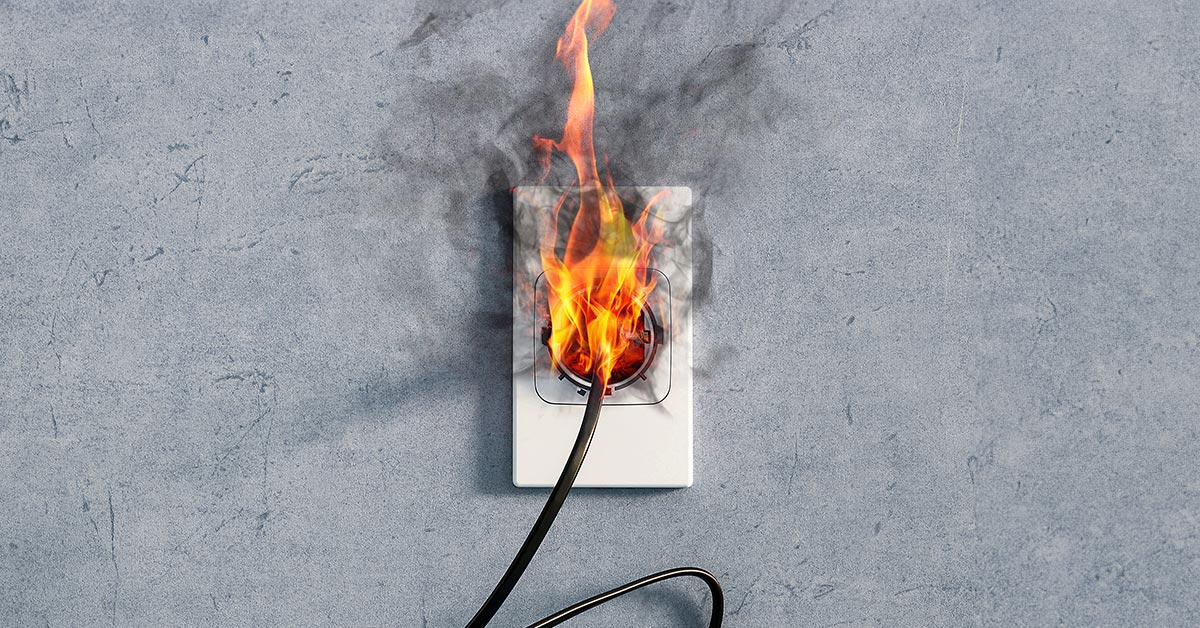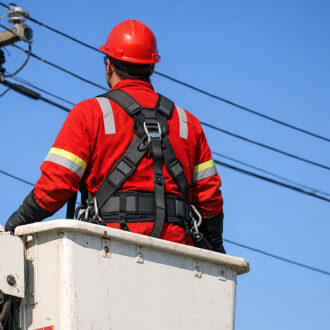
Residential Electrician
Let’s face it, we’ve all been there – you’re in the middle of blow-drying your hair or microwaving your lunch when suddenly, the power cuts out. It’s frustrating, right? But beyond the inconvenience, these electrical hiccups could be warning signs of bigger problems lurking in your home’s wiring. As your neighbors here in Orlando and Central Florida, we at Palmer Electric want to help you keep your home safe and your appliances humming. In this guide, we’ll explore how to identify potential electrical problems in your house, ensuring the safety and efficiency of your home’s power system.
Signs of Electrical Problems in Your Home
1. Frequent Circuit Breaker Trips
If you find yourself resetting circuit breakers more often than usual, it’s a clear sign that your electrical system is under stress. This could be due to overloaded circuits, short circuits, or ground faults. While occasional trips are normal, frequent occurrences warrant professional attention.
Circuit breakers are designed to protect your home by cutting off power when they detect an overload or fault. If they’re tripping regularly, it could indicate that your electrical usage has outgrown your system’s capacity, or there might be a more serious underlying issue.
2. Flickering or Dimming Lights
Notice your lights flickering or dimming, especially when you turn on high-powered appliances? This could indicate an overloaded circuit or a poor connection somewhere in your electrical system. It’s not just an annoyance – it’s a warning sign that shouldn’t be ignored.
Consistent power should provide steady illumination. Fluctuations in brightness often point to voltage irregularities, which can damage sensitive electronics and appliances over time.
3. Unusual Odors
A burning smell coming from outlets, switches, or electrical panels is a serious red flag. This could be a sign of overheating wires or components, which may lead to electrical fires if not addressed promptly. If you detect any strange odors, especially those reminiscent of burning plastic, it’s time to call a professional electrician immediately.
- Different odors can indicate various problems:
- A fishy smell might suggest overheating plastic around electrical components.
- A burning smell could mean insulation is melting.
- A metallic or ozone smell (similar to that after a thunderstorm) might indicate arcing electricity.
4. Sparking Outlets
While a tiny spark when plugging in an appliance can be normal, frequent or large sparks are cause for concern. This could indicate a loose wire connection, damaged outlet, or a more serious wiring issue within your walls.
Sparks can occur due to:
- Loose connections.
- Short circuits.
- Water damage.
- Aging outlets.
Any persistent sparking should be investigated by a professional to prevent potential fire hazards.
5. Hot Outlets or Switch Plates
Outlets and switch plates should never be hot to the touch. If they are, it’s a sign of overloading or a potential wiring problem. Warm outlets can lead to electrical fires, so it’s crucial to have them checked by a professional.
Heat buildup in electrical components often precedes more serious issues. It can be caused by:
- Loose connections.
- Overloaded circuits.
- Improper wiring.
- Faulty devices.
6. Buzzing Sounds
Electricity should flow silently through your home. If you hear buzzing or humming from outlets, switches, or your electrical panel, it could indicate loose wiring, overloading, or outdated components that need replacement.
- Different sounds can indicate various issues:
- A steady humming might suggest a loose wire.
- A buzzing sound could indicate arcing electricity.
- Crackling noises might mean there’s a loose connection or faulty switch.
7. Outdated Wiring
If your home is more than 40 years old and hasn’t had its electrical system updated, you might be due for a rewire. Older homes often have aluminum wiring or outdated systems that can’t handle modern electrical demands, posing significant safety risks.
Outdated wiring issues include:
- Insufficient capacity for modern appliances.
- Lack of ground fault circuit interrupters (GFCIs).
- Deteriorating insulation.
- Lack of proper grounding.
How to Check Your Electrical System
While professional inspections are crucial, there are some checks you can perform yourself:
1. Visual Inspection: Look for frayed wires, loose outlets, or any signs of scorching around electrical points. Check visible wiring in areas like the attic or basement for signs of wear or damage.
2. GFCI Test: Test your Ground Fault Circuit Interrupter (GFCI) outlets monthly by pressing the test and reset buttons. These outlets are crucial in areas prone to moisture, like bathrooms and kitchens.
3. Outlet Tester: Use a simple outlet tester to check for proper wiring in your outlets. This inexpensive tool can identify common wiring problems like reversed polarity or missing ground connections.
4. Circuit Breaker Check: Ensure your circuit breaker panel is free from rust, scorch marks, or strange odors. Check that all breakers are firmly in place and none feel loose.
5. Appliance Inspection: Regularly check the cords of your appliances for any signs of fraying or damage. Replace any damaged cords immediately.
Common Causes of Electrical Problems
1. Overloaded Circuits: sing too many high-wattage devices on a single circuit can cause overheating and tripping.
2. Outdated Wiring: Old or deteriorating wiring that can’t handle modern electrical loads is a common issue in older homes.
3. Poor Connections: Loose or improperly installed connections in outlets, switches, or junction boxes can cause arcing and heat buildup.
4. Water Damage: Exposure to moisture can corrode wires and components, leading to short circuits and other issues.
5. Rodent Damage: Pests can chew through wiring, creating fire hazards and causing intermittent electrical problems.
6. DIY Mistakes: Improper installation or repairs by non-professionals can lead to various electrical issues.
7. Natural Wear and Tear: Over time, electrical components can degrade, leading to inefficiency and potential safety hazards.
How often should I have my electrical system inspected?
It’s recommended to have a professional inspection every 3-5 years, or annually for older homes. However, if you notice any of the warning signs mentioned earlier, don’t wait for a scheduled inspection – call a professional immediately.
What are the warning signs of an electrical fire?
Look out for persistent burning smells, discolored outlets or switches, and frequently tripping circuit breakers. Other signs include warm or vibrating outlets, flickering lights, and buzzing sounds from the electrical panel.
How do electricians check for faulty wiring?
A: Professionals use specialized tools like multimeters, circuit analyzers, and thermal imaging cameras to detect issues that aren’t visible to the naked eye. They may also perform load calculations to ensure your system can handle your electrical needs.
Is it necessary to rewire my entire house?
A: It depends on the age and condition of your current wiring. A professional assessment can determine if a full rewire is needed or if targeted updates will suffice. Factors considered include the age of the home, the type of wiring used, and any visible signs of wear or damage.
How can I prevent electrical problems in my home?
Regular maintenance is key. Avoid overloading circuits, use surge protectors, keep electrical components dry, and schedule regular professional inspections. Also, be cautious about DIY electrical work – always consult a professional for complex tasks.
What's the difference between a circuit breaker and a fuse?
Both protect against overcurrent, but circuit breakers can be reset, while fuses must be replaced when they blow. Modern homes typically use circuit breakers, which offer better protection and convenience.
Orlando Residential Electrician
Remember, electrical issues are nothing to mess around with. They can be more than just a pain in the socket – they can be downright dangerous. If you’ve spotted any of these signs in your Orlando or Central Florida home, or if you can’t remember the last time your electrical system had a check-up, it’s time to call in your local expert electricians.
Don’t wait for a small problem to become a major hazard. Contact Palmer Electric today at 407-646-8700 for a comprehensive electrical inspection or to address any concerns you may have about your home’s electrical system. Our team of experienced professionals is ready to ensure your Orlando or Central Florida home stays safe and powered up.




